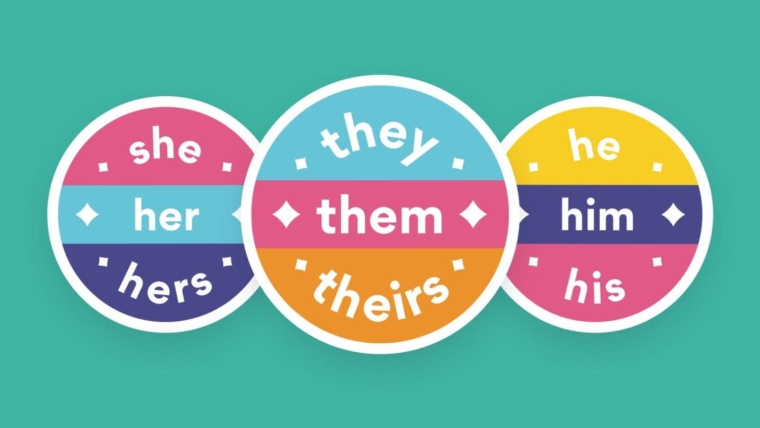Have you ever considered how the name you are called, the pronouns used to describe you, and how you present yourself to the world might impact your life? For many individuals, particularly those who identify as transgender or non-binary, social transition plays a crucial role in affirming their authentic selves and fostering a sense of well-being.
This blog post delves into the world of social transition, exploring what it entails, the different aspects involved, and how it can positively impact individuals and their communities. By fostering understanding and creating a more inclusive environment, we can empower individuals on their unique journeys.

Unveiling Social Transition: What Does It Mean?
Social transition refers to the public process of aligning one’s external presentation and identification with their internal sense of gender. This journey is entirely personal and varies from person to person, but often involves:
- Name Change: Choosing a new name that resonates deeply with one’s gender identity is a common starting point. This can be a formal legal name change or simply adopting a chosen name in social settings.
- Pronoun Update: Pronouns are powerful tools in reflecting and respecting someone’s gender identity. Individuals may choose pronouns that differ from those traditionally associated with their assigned sex at birth, such as he/him, she/her, they/them, or other non-binary pronouns.
- Gender Presentation: This encompasses everything from clothing and hairstyle to mannerisms and voice that one chooses to express their gender identity. It’s important to remember that there’s no single “correct” way to present oneself, and individuals have the right to express themselves authentically.

Stepping into New Beginnings: Exploring the Benefits of Social Transition
Social transition can have a profound impact on individuals, leading to:
- Increased Self-Esteem: Aligning external presentation with internal identity can contribute to a greater sense of self-worth and confidence.
- Improved Mental Health: Studies have shown that social transition can significantly reduce symptoms of depression and anxiety, particularly for transgender and non-binary individuals.
- Enhanced Authenticity: Living authentically and being recognized in accordance with one’s gender identity fosters a sense of personal fulfillment and belonging.
- Stronger Relationships: Open communication and respecting individuals’ chosen names and pronouns can build trust and strengthen relationships within families, friendships, and communities.
Navigating the Journey: Supporting Individuals During Social Transition
While social transition is a deeply personal journey, there are ways to support individuals in this process:
- Respecting Chosen Names and Pronouns: Using an individual’s chosen name and pronouns demonstrates respect and affirms their identity. If unsure about someone’s pronouns, it’s always polite to ask respectfully.
- Educating Yourself: Learning about transgender and non-binary identities, terminologies, and experiences can help foster empathy and understanding.
- Creating Inclusive Spaces: Using inclusive language and creating safe spaces where individuals feel comfortable expressing themselves authentically is crucial.

Embracing Authenticity: Concluding Thoughts
Social transition is a powerful journey of self-discovery and affirmation. By understanding and supporting individuals through this process, we can foster a more inclusive and respectful environment for everyone. Remember, everyone deserves to be recognized and treated with dignity and respect, regardless of their gender identity or expression.
We encourage you to continue learning, engaging in respectful dialogue, and becoming advocates for a more inclusive world where everyone can thrive authentically.
Feminizator.com is a website that believes that femininity is a colorful universe. Here, you won’t find rigid definitions or worn-out stereotypes about femininity. Instead, we celebrate a vibrant spectrum with all the complexity, power and joy of being “it”. Every day, we dive into the multifaceted world of femininity. We explore topics such as inner strength, creative expression, conscious living and global perspectives. We also embrace LGBT+ and transgender people and show them different ways of being feminine. We are here to empower you to embrace your femininity, own your own story and blossom into the best version of yourself. Welcome to Feminizator. Welcome to yourself.
Frequently Asked Questions about Social Transition for Transgender Women
What are some things I should consider when choosing a new name?
Choosing a new name can be a deeply personal and exciting experience for transgender women. There’s no single “right” way to approach this, but here are some factors to consider:
- Personal Connection: Does the name resonate with your personal sense of identity and femininity?
- Pronunciation and Spelling: Consider how easy it is to pronounce and spell, and if any potential mispronunciations might cause discomfort.
- Cultural Significance (Optional): Some transgender women choose names with cultural or historical significance that hold meaning for them.
- Availability: Check for name availability on legal documents and social media platforms.
Ultimately, the most important thing is to choose a name that feels authentic and empowering to you.
How can I update my name and pronouns in various spaces?
Updating your name and pronouns can be done in different ways, depending on the context:
- Social Media: Most platforms allow you to edit your profile information to reflect your chosen name and pronouns.
- Email: Update your email signature and consider mentioning your preferred name and pronouns in your introductory email.
- Workplace: Depending on your company’s policies, you might need to formally update your name through HR or specific departments.
- Legal Documents: Changing your legal name typically involves following specific legal procedures in your region. Consulting with an attorney or legal aid organization can be helpful.
Remember, be patient and persistent throughout the process, and advocate for yourself respectfully if you encounter any resistance.
How can I approach conversations about my social transition with family and friends?
Open and honest communication plays a crucial role in navigating social transition with loved ones. Here are some tips:
- Choose a comfortable setting: Have the conversation in a private and relaxed environment where you feel safe and heard.
- Explain your experience: Share your feelings and motivations for social transition in a clear and concise manner.
- Practice using your chosen name and pronouns: This can help normalize the use of your new identity markers.
- Be patient and understanding: Educate your loved ones about transgender identities and the importance of social transition. It may take some time for them to adjust and fully understand.
Remember, open communication and patience are key to fostering support and understanding during your social transition.
What resources are available for transgender women navigating social transition?
Numerous resources exist to support transgender women during social transition, including:
- Transgender organizations: These organizations offer support groups, educational resources, and advocacy services specifically tailored to the needs of transgender individuals.
- Mental health professionals: Therapists and counselors who specialize in working with LGBTQ+ individuals can provide guidance and support throughout the transition process.
- Online communities: Connecting with other transgender women online can provide a sense of belonging, understanding, and shared experiences.
Don’t hesitate to seek support and guidance from available resources. Remember, you are not alone in this journey.


